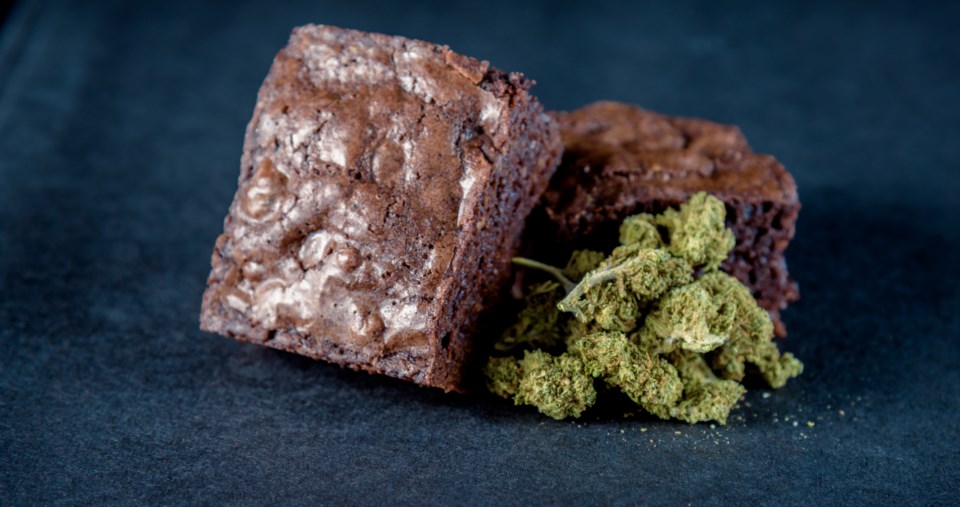This article, written by Sylvain Charlebois, Dalhousie University and Janet Music, Dalhousie University, originally appeared on The Conversation and is republished here with permission:
This October, cannabis-infused edibles will be fully legal on the Canadian market.
Despite claims that broader cannabis legalization would change the social, economic and cultural fabric of the country, there is little evidence to suggest that this is the case.
The government itself claimed initially that its primary intent was to legalize cannabis without normalizing it. That’s exactly what it delivered. Allowing Canadians to have access to legal cannabis while keeping the social stigma against routine marijuana use alive was arguably the result the government was looking for.
The rollout of commercially available dried cannabis flower was relatively uneventful, though shortages and high price points still allow the black market to thrive. Beyond the hoopla, nothing has significantly changed. As illegal vendors continue to prosper, the social stigma has remained, evidenced by a recent study by Dalhousie University.
This recent study released in May suggests that Canadians remain supportive of legalized cannabis, but their enthusiasm for legalized cannabis and edibles has dropped in recent months.
Now, edible cannabis policy is in the spotlight as Western countries around the globe look to capitalize on this frontier market. Canada is once again acting as a global social experiment, demonstrating to international political and business communities best and worst market practices.
Edibles are big business
Generally, consumers remain open to the edible cannabis market. In American states where cannabis is legal for recreational use, edibles account for 12 to 15 per cent of the market. In Canada, sales of cannabis-infused edible products are projected to reach $4.1 billion by 2022.
While the edible market offers opportunities for prosperity for cannabis producers and retailers, there remain challenges ahead for those looking to enter this market. Negative media portrayals have raised concerns among consumers who have yet to sample edibles. Cannabis ingestion among children presents a serious public health issue, expected to increase with the advent of legally available edible products, such as gummy candies and baked goods that appeal to kids.
Some consumers who currently want to integrate cannabis-infused food into their diets without turning to the black market for edibles — and without increasing their sugar intake — cook with cannabis. But that carries great risks that aren’t being given any consideration by regulators.
The effects of cannabis-infused edibles vary greatly and are dependant on dose, gender, weight and metabolism. For novice users, edibles present a chance of accidentally consuming too much as they experiment in getting the dosage right for their own personal circumstances.
There are multiple social media how-to videos on baking and cooking with cannabis, but these aren’t monitored for the accuracy of the information provided, further leaving consumers open to cannabis-related mishaps.
‘Walking a fine line’
And so the government is walking a fine line between public safety and promoting the sale of cannabis as a recreational intoxicant, particularly when it comes to edibles.
As uncertainty grows among consumers about edibles, how much of it is fed by public service messaging is unclear. Certainly, mixed messaging does little to alleviate confusion. Health Canada guidelines and recent media coverage may be contributing to an increase in uncertainty about experimenting with edibles. Health Canada’s uncompromising regulatory framework is making many feel that edibles are welcomed in Canada, to a certain degree.
While public safety campaigns target sober driving and address child safety regarding cannabis-infused candy, businesses looking to market cannabis must adhere to strict guidelines that limit the scope and reach of what they can promote.
The regulations set by the federal government surrounding the legal sale of cannabis edibles are confusing to retailers. There are of course mandatory regulatory requirements regarding testing and dosage. Labelling guidelines will be the same as those for food and pharmaceuticals. However, the low THC limit of 10 milligrams per edible, and the lack of clarity around how much THC is allowable per package, has the potential to cut into a business’ bottom line.
The Dalhousie survey revealed how illiterate Canadians are about cannabinoids. Only 31 per cent of respondents were able to detect the non-psychoactive, therapeutic nature of CBD. CBD is of great interest to the food industry, but few understand it. More public education is needed.
Overall, the legalization of cannabis in October 2018 allowed for new markets in cannabis distribution. Adding edibles to the mix this fall isn’t likely to fuel broad cultural changes in the way Canadians imbibe in the short term. Canadians, by and large, have accepted cannabis, but policies are preventing businesses from catching up and leading the rest of the world in cannabis production and distribution. So far, that’s a missed opportunity.![]()
Sylvain Charlebois, Director, Agri-Food Analytics Lab, Professor in Food Distribution and Policy, Dalhousie University and Janet Music, Research Associate at Agri-Food Analytics Lab from the School of Information Management, Dalhousie University
This article is republished from The Conversation under a Creative Commons license. Read the original article.
